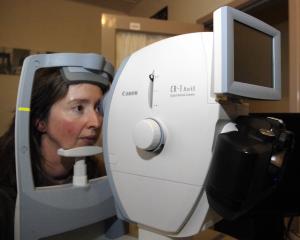Law researchers say an agreement between a northern Hawke's Bay hapu and a state science company provides a model for controlling the use of intellectual property arising when whole communities are genetically tested.
"The law's got to come to grips with this - why should people go into research which is going to be important, and yet have no control over who's going to get the gains from it and how it's going to be used," said Professor Mark Henaghan, dean of Otago University law school.
He was speaking in Wellington after leading a human genome law project at the university which today released its final report on law-changes and regulations needed to cope with increasing use of human DNA for research, screening and manipulation of embryos.
The "very exciting" framework between Te Iwi o Rakaipaaka and the Environmental Science Research Institute (ESR) allowed the 3000 Maori to retain control over use of the research findings and any intellectual property benefits, he said.
"It can be a model, I think, for other groups."
The longitudinal "health and ancestry" study seeking genetic causes for serious diseases in the community and comparing them with lifestyle and environmental factors achieved notoriety in 2006 in a row over use of the genetic data for other research.
One researcher, Rod Lea, disclosed findings that men in the study with an over-representation of monoamine oxidase (MOA) - dubbed the "warrior gene" - were associated with aggressive behaviour.
The findings were reported by some media as implying Maori men might have a genetic predisposition to aggressive behaviour.
"It had all sorts of adverse reactions...it had an effect on these people," said Prof Henaghan.
Though the MOA gene was found across ethnic boundaries, the publicity left members of the hapu concerned about the research.
Prof Henaghan said the case highlighted issues about the use of genetic material ending up with an ethnic group being stigmatised.
"They are still working through protocols on how you do research on a whole community to make sure if feels safe and confident," said Prof Henaghan.
Prof Henaghan said the case also highlighted issues about access to stored tissue which could be used for research.
He proposed archives of tissue collected in hospitals, labs, universities, DNA banks, private researchers and fertility clinics should have tighter controls over what research was conducted, with greater obligations on researchers to explain findings in a way that was not likely to be misinterpreted.
Registration and licensing of collections is recommended as a way of imposing stricter control and regulation.











